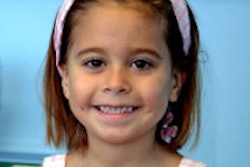The American Academy of Pediatrics (AAP) and the Canadian Paediatric Society (CPS) have issued a new policy statement that provides recommendations for the prevention of dental disease in young children and pregnant women, through collaboration with primary healthcare providers, policymakers, and public health practitioners in indigenous communities (Pediatrics, May 29, 2011).
Good oral health for mothers and their babies should be promoted during the prenatal period and continue as children enter school. Unfortunately, in some Canadian indigenous communities, more than 90% of children have caries, and the prevalence may be increasing, the authors noted.
"The influence of early childhood caries on overall childhood health and well-being goes well beyond the mouth, and many of our indigenous children have not benefited fully from the many advances to improve oral health in North American children," said James Irvine, MD, co-author of the statement. "In fact, there are remarkable similarities in health issues and living circumstances of indigenous children in the U.S. and Canada. This position statement places emphasis on the reduction in health disparities in both the U.S. and Canada."
The organizations stress the need for indigenous children to have access to early oral healthcare. However, the severity of dental disease and the barriers to care in these communities require special consideration.
"Many physicians continue to view early childhood caries as a dental problem to be treated by dentists," noted Steve Holve, MD, FAAP, another co-author. "We want to emphasize that early childhood caries is an infectious disease, knowing that infectious diseases are problems in which pediatricians and primary care providers are experts. The skills of our dental colleagues are highly valued, but we hope to shift the focus of treatment for early childhood caries to primary care providers and preventive measures such as topical fluoride varnishes."
AAP and CPS recommendations include the following:
- Use well-child visits to educate parents and caregivers of infants and children on proper oral hygiene and diet.
- Promote supervised use of fluoridated toothpaste in all indigenous and other high-risk children after the first tooth has erupted.
- Provide pregnant indigenous women access to prenatal screening for dental health, and referral for dental care if needed.
- Ensure that indigenous children have access to fluoride varnish programs and other oral health prevention and treatment services.
"AAP and CPS statements are read not only by pediatricians, but also by family physicians, nurse practitioners, community health nurses, physician assistants, and other health professionals," Dr. Irvine said. "The role that primary care pediatricians and other providers play in various indigenous communities in North America places them in a unique position to complement the work of our dental health professional colleagues."



















